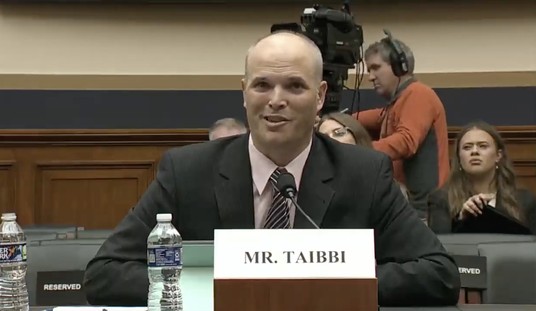Our welfare system has become largely ineffective at lifting people out of poverty. There is a bitter fight nail brewing in Congress over work requirements for welfare recipients that could be the needed turnaround.
President Biden labeled “wacko” the Republican proposal in the debt ceiling bill to require able-bodied childless beneficiaries to either work, obtain job training or do volunteer work. Our great uniter claimed “Republicans are cutting benefits for folks they don’t seem to care much about.”
The welfare industry chimed in, saying poor people have no transportation options and job training was not available in some areas. Welfare recipients will be thrown into abject poverty if required to work, because apparently they are incapable of self-sufficiency.
Reform advocates countered that not working is a choice and most people, including low income people, have more satisfying lives when working and providing for their families.
So which side is correct? They can’t both be, and It’s important to get the answer, right for the future of our nation.
Wouldn’t it be wonderful if we could run an experiment, mandating work requirements in welfare programs to see what happens? Good news—that’s already been done.
In the 1990s, the Newt Gingrich-led Congress passed, and President Clinton, after extensive urging, signed a comprehensive welfare reform bill. The law required able-bodied adults to work or be in a job training program to receive benefits. It also placed lifetime limits on welfare.
By the 1990s, the War on Poverty had been waged for three decades. Many Americans were becoming disillusioned as they saw that poverty was winning.
LBJ’s welfare programs to wipe out poverty had been horrendously expensive and yet poverty levels hadn’t been dented. Instead, millions of low-income Americans had adopted welfare as a way of life, to be passed on through generations.
Recommended
When the reforms were implemented, welfare recipients weren’t cast into the streets, as Senator Ted Kennedy had predicted. In fact, it was a stunning policy success. Welfare caseloads decline by 60 percent. Of those leaving, 70 percent began working.
There’s more. Government savings were $100 billion in today’s dollars. Best of all, the child poverty rate plummeted every year from 1994 to 2000. For people leaving the welfare plantation, income increases soon easily exceeded welfare benefits. Moreover, people with jobs enjoyed healthier lives , better marriages, and vastly improved financial futures than those stuck in welfare.
So welfare reformers declared victory and moved on, unfortunately leaving the same entrenched bureaucracy as before to manage the system. Before long, clients were again being evaluated for program eligibility not work readiness. Workarounds were offered for those who preferred not to work.
As the bureaucracy oozed back into control, work mandates weakened. Many states quietly removed them altogether, as Arizona did for its Medicaid program.
With the onset of the Covid pandemic, the Biden administration took the opportunity to eviscerate work requirements altogether in federal welfare programs. Thankfully, grocery clerks, truck drivers and cops and stayed on the job, but not teachers or welfare recipients.
Now that the pandemic has officially ended, work requirements still have not been reinstated as promised. In fact, Biden refuses to consider such a proposal in the debt ceiling negotiations.
The ending of the pandemic and work requirements have been a boon for the welfare industry. In response to Covid, Congress also increased the Supplemental Nutrition Assistance Program (“SNAP” or food stamps) benefit amount and banned states from removing people who were no longer eligible from the Medicaid roles.
As a result, welfare has become more pervasive than ever. 40 million people are now receiving food stamps, even though it’s common knowledge that taxpayers are funding a lot of chips and soda. Medicaid enrollment has soared to 85 million, now that it has been expanded to include working age men above the poverty line.
There are up to four million employable adults not working while 10 million job openings are available. This is a great opportunity to get more Americans back to work, yet Democrats by their actions seem more interested in keeping Americans dependent on government than in reducing poverty.
We should absolutely have a working safety net, not a welfare system that keeps Americans mired in poverty. Why not learn from our own history and return again to prioritizing work over welfare?

























Join the conversation as a VIP Member